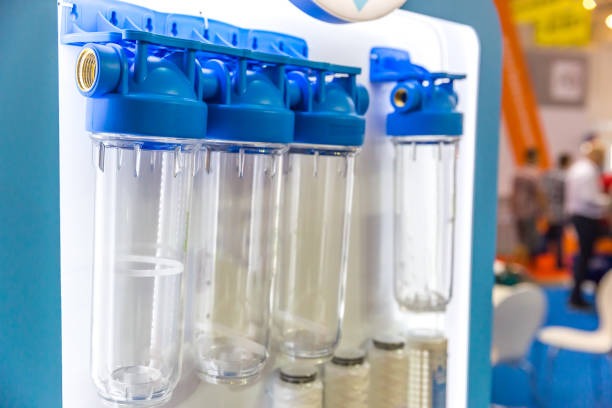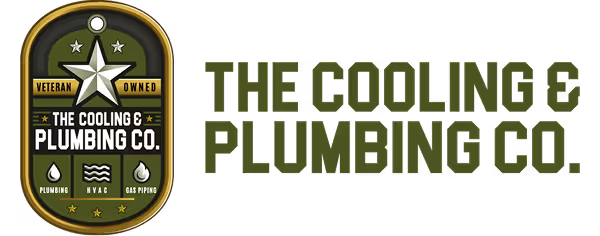Water Filtration in Santan Valley, AZ
Clean, reliable water is a foundation for healthy living and efficient home systems. In Santan Valley, AZ, where municipal supplies and private wells both serve local neighborhoods and hard mineral content, chlorine tastes, sediment and occasional well contaminants create unique water quality challenges. Professional water filtration and purification helps protect your plumbing and appliances, improves taste and odor, and reduces health concerns by targeting the specific contaminants found in your home.

Common water problems in Santan Valley homes
- Hard water minerals (calcium and magnesium) that cause scale build up on fixtures, shorten appliance life, and leave spots on glassware.
- Chlorine or chloramine taste and odor from municipal treatment that affects drinking water and coffee or cooking.
- Sediment and sand from aging distribution lines or well supplies that clog fixtures and reduce flow.
- Iron, manganese or sulfur in some well systems causing discoloration and rotten-egg smells.
- Elevated total dissolved solids (TDS) or nitrates in private wells, requiring targeted treatment.
- Lead or other plumbing-related contaminants in older homes with aging pipes or fixtures.
Water filtration and purification services available
We match systems to the problem and the home layout, including these commonly installed solutions:
- Whole-house filtration systems - Treat water at the mainline to protect plumbing, water heaters and appliances. Typical whole-house systems use sediment pre-filters and catalytic carbon to remove particles, chlorine and organic contaminants.
- Reverse osmosis (RO) systems - Point-of-use RO under-counter systems provide high-quality drinking and cooking water by removing dissolved solids, heavy metals and many contaminants. Ideal for kitchen sinks and ice makers.
- Point-of-use carbon and ceramic filters - Cost-effective options for improving taste and removing chlorine, VOCs and some particulates at a single faucet.
- UV disinfection - Kills bacteria and viruses without chemicals, commonly paired with other treatments for well water safety.
- Well water treatment packages - Customized combinations of sediment filters, iron/oxidation units, water softening or RO depending on test results.
- Integrated water softening - While not a filtration method in all cases, softeners often pair with filtration to reduce scale and extend filter life.
Benefits of professional filtration in Santan Valley
- Better tasting, clearer drinking water and improved cooking results.
- Reduced scale on fixtures, longer-lasting water heaters and appliances.
- Lower maintenance and fewer repairs on faucets and appliances.
- Targeted removal of contaminants common to municipal and well sources.
- Peace of mind from a solution designed around your home and test results.
Onsite water testing and results-driven system selection
Choosing the right system starts with water testing at your home. A typical diagnostic process includes:
- Collecting a tap sample at the point of use and, when appropriate, a raw supply sample at the mainline or wellhead.
- Laboratory or field testing for parameters like hardness, pH, chlorine/chloramine, sediment, iron, manganese, nitrate, TDS, lead and microbial indicators.
- Reviewing household usage patterns and appliance locations to determine point-of-use versus whole-house needs.
- Recommending a tailored system that balances contaminant removal, flow rate and maintenance requirements.
This results-driven approach avoids over- or under-treating your water and provides measurable performance expectations.
Professional installation: what to expect
Installation by certified technicians follows industry best practices to ensure reliability:
- Site assessment and system placement to maintain accessibility and proper clearance.
- Proper plumbing connections with shutoff and bypass valves so water can be directed around the system if needed.
- Electrical hookups for systems that require power, and grounding where required.
- Pressure and leak testing, followed by a flush and performance verification based on pre-install test values.
- Walkthrough of operation, filter change procedures and system indicators so you know when service is needed.
Installations are completed to local code and with licensed, bonded and insured technicians.
Routine maintenance and filter replacement schedules
Ongoing maintenance preserves performance and water quality. Typical schedules:
- Sediment pre-filters: replace every 3 to 6 months depending on sediment load.
- Carbon filters: replace every 6 to 12 months depending on use and contaminant load.
- Reverse osmosis membranes: inspect annually, replace every 2 to 5 years depending on feed water and TDS.
- UV lamps: replace annually to maintain disinfection effectiveness.
- Whole-house system service: annual checkups that include pressure drop checks, media replacement as needed and performance testing.Signs a system needs attention include reduced flow, taste or odor return, visible discoloration, or frequent pressure fluctuations.
Certifications, standards and warranties
Look for systems and components certified to NSF/ANSI standards relevant to their claims, such as:
- NSF/ANSI 42 for taste and odor reduction.
- NSF/ANSI 53 for health-related contaminant reduction.
- NSF/ANSI 58 for reverse osmosis systems.
Technicians should be licensed and insured, and installations typically include parts and labor guarantees. Service providers commonly offer a warranty period on parts and workmanship and follow manufacturer maintenance recommendations to keep warranties valid.
Pricing transparency and financing options
Accurate pricing begins with onsite testing and a written estimate that outlines equipment, installation labor and expected maintenance. While specific costs vary by system size and complexity, financing solutions are frequently available to spread investment over time. Estimates should include warranty coverage, expected filter lifecycle costs and clear information about service plans so you can compare long-term value.
How scheduling and service visits are handled
A standard service process includes a scheduled assessment visit for water testing and home inspection, delivery of a written proposal with system options and timelines, followed by a mutually agreed installation appointment. After installation, technicians perform verification testing and review maintenance intervals and any service plans available. Regular service reminders and annual checks help sustain system performance.
Why invest in water filtration in Santan Valley, AZ
Given the local mix of municipal and well water sources and the area’s hard water tendencies, investing in a professionally designed water filtration system provides measurable improvements in water quality, home appliance longevity and everyday comfort. A tailored system guided by onsite testing protects your household and delivers consistent, great-tasting water where you need it most.






